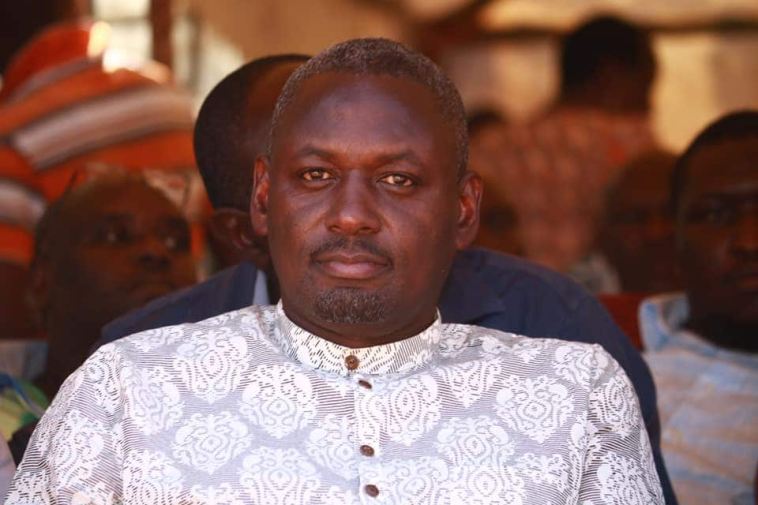Advocate Paul Otiende Amollo will be the first victim of the draconian Cyber Crime Bill the legislators passed in the parliament. MPs passed the law–to curb the spread of fake news– so they said, but deep down in their minds that was a tool to fight independent blogger. The axe has started falling on them.

Dr Ndii.., Really? So they convinced Echesa to play along? And Persuaded the Rome Embassy where June Ruto at 27yrs is Central to Persuade Poland to play along? Really Daktari?…
— Otiende Amollo, SC,MP, EBS (@OAmollo) March 8, 2020
Advocate Otiende Amollo was caught pants down after he referenced a photo-shopped article that was already marked FAKE by the Facts Checker.
Counsel, could you admitting photoshop as evidence, or you have other evidence thats not in the public domain? https://t.co/ZOMamYBxk4
— David Ndii (@DavidNdii) March 8, 2020
The High Court dismissed the case filed by Bloggers Association of Kenya (BAKE) challenging the constitutionality of the Computer Misuse and Cyber-crime Act 2018. In his ruling, Justice James Makau stated that the petition was unwarranted and had sections that had been suspended by the court.
The Act proposes the creation of the National Computer and Cybercrimes Coordination Committee whose mandate includes advising and coordinating national security organs on matters relating to computer and cybercrimes; coordinating the collection and analysis of cyber-threats and responses to cyber incidents that threaten Kenya’s cyber space.
According to the Bill, the committee mandate also entailed receiving and acting on reports related to computer and cyber-crimes; advising the national government on critical and emerging technology such as mobile money and block-chain technology; establishing codes and frameworks to manage critical national information infrastructure; and for the training of security personnel on the prevention, detection and mitigation of computer and cyber-crimes.
Following the petition, Justice Chacha Mwita suspended 22 sections that touched on child pornography and its penalties, publishing of false information, fraudulent use of electronic data, interference with computer systems and data, among others.
On June 25, 2018, the Attorney General filed an application seeking to have the suspension lifted pending the hearing and determination of the case.
“The Attorney General argued that the suspension ordered by Justice Chacha Mwita was erroneous as it was heard and determined exparte, ” BAKE said in an update on its blog.
On October 1, Justice Wilfrida Okwany dismissed the IG’s petition.
In her ruling, Justice Okwany stated that the injury complained of has to be balanced with the legal requirement that all laws pass the constitutional validity test.
According to the bloggers, the disputed law contains provisions which deny, infringe and threaten freedom of expression, media and persons besides the right to privacy, property and a fair hearing.
BAKE has also been alleged to have colluded with those cartels that were fronting the draconian Bill which had almost all of its sections threatening the freedom of opinion, freedom of expression, freedom of the media, freedom and security of the person, right to privacy, right to property and the right to a fair hearing.
https://twitter.com/CisNyakundi/status/1230414735134396416?s=20
Seems like @BakeKenya were bribed by the proponents of this misguided bill, to front weak lawyers and sabotage the case. BAKE has become trash. More like a department under Ezekiel Mutua’s refreshments budget. https://t.co/KgsVdesFjc
— Francis Gaitho (@Kenyafootball) February 20, 2020
In this tough times of Uhurunomics, many- rather a good number of Kenyans now draw their livelihood from content creation online and that there have been previous attempts by the government to clamp down freedom of expression in that platform. Section 29 of the Kenya Information and Communication Act and Section 194 of the penal code were the ones famously used to punish freedom of expression offenders.
In 2016, at least 60 bloggers were arrested for exercising their freedom of expression online while several journalists were silenced, intimidated, harassed or killed.
In 2016, another judge, Lady Justice Mumbi Ngugi had declared that section 29D of the Kenya Information and Communications Act unconstitutional (KICA) after notable blogger went to court.
Justice Wilfrida Okwany declared section 84D of the KICA law unconstitutional too in 2019 after a successful challenge by Blogger Cyprian Nyakundi. Justice Okwany categorically stated that public officials should be ready to be criticized.
https://twitter.com/CisNyakundi/status/1230415660548841472?s=20
“Kenya is a dictatorship and leaders who come to power through bribery, killing, maiming and stealing don’t want to be corrected or told the truth”, a Kenyan spoke to KenyanBullettin.com on condition of anonymity said.
Cyber-crime law which came to effect last month, seeks to reintroduce the purged laws while imposing harsher restrictions. Just like the Rarieda MP might be, millions of internet users are at risk of being arrested and prosecuted for unconstitutional offences.














